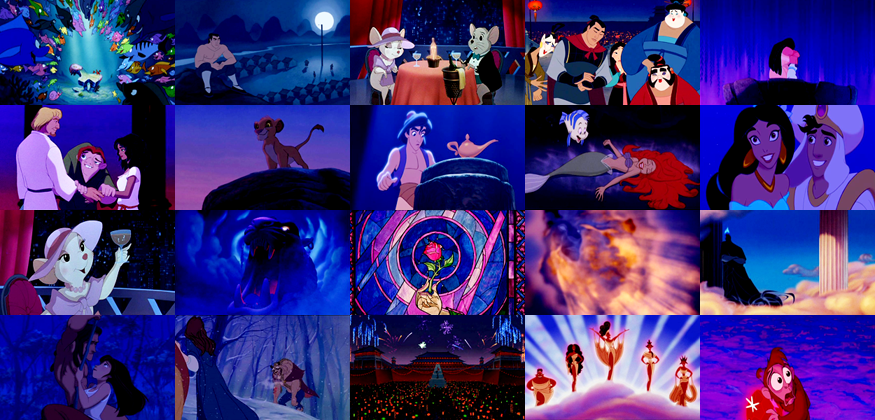
It should come as a surprise to no one that the greatest era in Walt Disney's Feature Animation department is arguably the most beloved era of a single company's film making in motion picture history. After all, not only was Disney at the height of their creative development, but the studio continued to release hit after hit, without any glaring failures in anyone's eyes. To many who are reaching adulthood today,. these films are what we grew up on. My first film watching experiences were at least five of the top movies pictured above. These films have had a profound impact on how we act, how we think, and how we tell our life stories.
But which of these high ranking movies is the most superior? How can one masterpiece be better than another? That is what I will be focusing on for the next several posts. Which film was the most structurally sound, which was the most superior in one area, and ultimately, which was the best. Feel free to argue for one of your movies on this list or if you think my list is incorrect, but please understand that this is all opinion based, so it doesn't make someone stupid if they agree or not.
Here is how the list will be determined. All 10 films of the Disney Renaissance will be judged on the following categories:
Hero
Heroine
Villain
Supporting Cast
Songs (The Rescuers Down Under gets a pass here)
Musical Score
Animation
Story
Special Effects
Theme/ Message
Each film will be scored on a 1-10 scale. The higher points you score for a category, the greater the chance is that film is ranked the best. But please note that just because a film could get two or three 10's in a row, doesn't mean that it is guaranteed a victory. Keep a close eye on the consistent films.
This Round: The Musical Scores
The Disney Renaissance proved that a film needed more than just a solid list of songs to move the film forward. The films also needed deep and interesting musical scores. Combining the elements of cultural instruments, soft ballads, dramatic action scenes, and sorrowful tearjerking moments, a score is a lot more important than we'd think. In an era where Alan Menken wrote the scores for more than half of the following films, it seems likely that he'll win the top spot, right? Right? Well...
10. Hercules (Alan Menken)
The musical score of Hercules never got it's stand alone moment, that the other films of this era got. For instance, there isn't really a good scene that is moved almost entirely by the dramatic musical score (like the wildebeest stampede in The Lion King, or the storm sequence in The Little Mermaid). The film was mostly driven by it's long list of songs, which is good, but it doesn't give the film any real credit here. And it's a shame, because Hercules was the one film exceeding my expectations going into this part of the list. I would have thought this film would have been left in the dust by now. I guess it will get it's shot now...
+1 point
9. The Rescuers Down Under (Bruce Broughton)
 Unlike the other films on this list, The Rescuers Down Under did not have the luxury of an Alan Menken musical score, forcing the film to rely musically on it's instrumental score to carry the film. And unfortunately, outside of the magnificent scene with Cody flying on Marahute's back, the film does not take advantage of it's score and instead used the animation to guide the story, which propelled the film into mediocrity in the eyes of many Disney fans over the years. If a film has no songs, and a lackadaisical film score, what does the film really have to offer musically?
Unlike the other films on this list, The Rescuers Down Under did not have the luxury of an Alan Menken musical score, forcing the film to rely musically on it's instrumental score to carry the film. And unfortunately, outside of the magnificent scene with Cody flying on Marahute's back, the film does not take advantage of it's score and instead used the animation to guide the story, which propelled the film into mediocrity in the eyes of many Disney fans over the years. If a film has no songs, and a lackadaisical film score, what does the film really have to offer musically?
+2 points
8. Tarzan (Phil Collins & Mark Mancina)
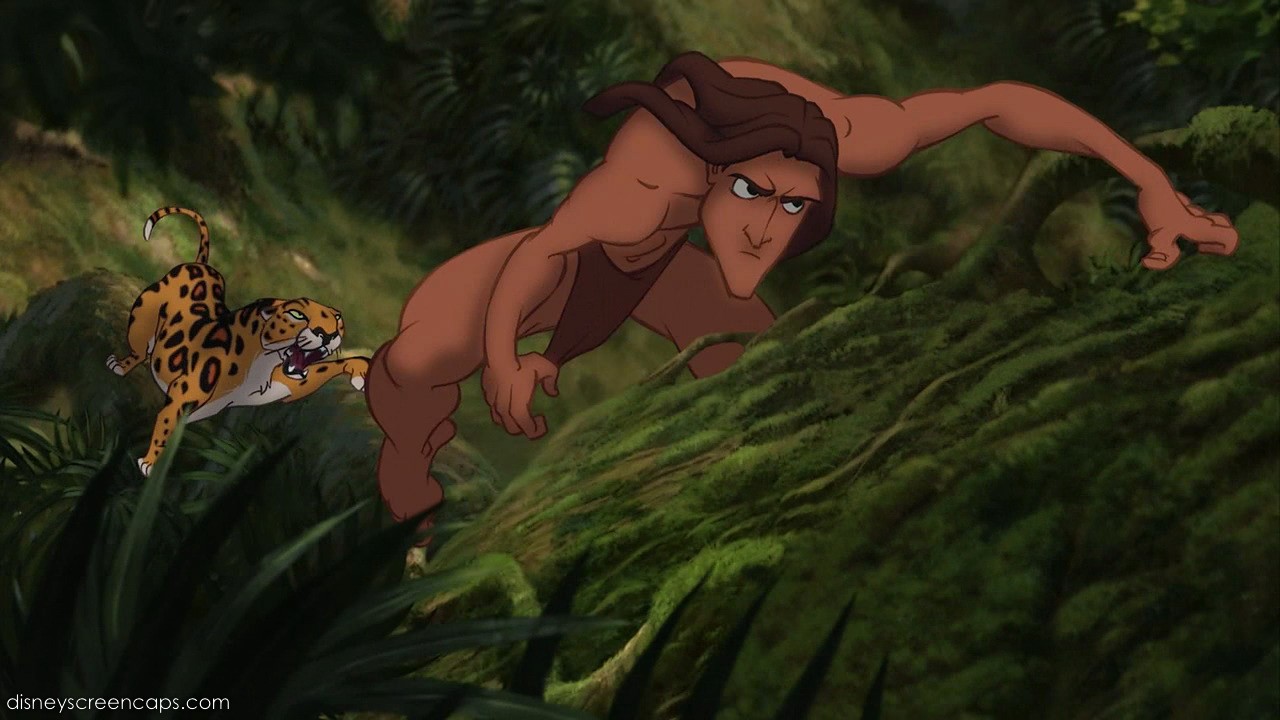 Tarzan is the first film in this list that has a musical score that does not commit any major crimes, but still is forced to fade to the back of the list because of the epic scores that await us in the front of the group. In his first film score opportunity after his brilliant work on the Rhythm of the Pridelands CD, Mark Mancina does some really good work with the film, not following strictly in Hans Zimmer's footsteps and completely replicating The Lion King's score, but using separate kinds of African instruments. The film does not require the Zulu choirs of it's predecessor, because Tarzan really wasn't set in that part of Africa. It would have been a rip off had they simply rehashed the scores, but Mancina does an honest attempt to make the film different from all others. Good for them, but not good enough to warrant a higher spot on the countdown.
Tarzan is the first film in this list that has a musical score that does not commit any major crimes, but still is forced to fade to the back of the list because of the epic scores that await us in the front of the group. In his first film score opportunity after his brilliant work on the Rhythm of the Pridelands CD, Mark Mancina does some really good work with the film, not following strictly in Hans Zimmer's footsteps and completely replicating The Lion King's score, but using separate kinds of African instruments. The film does not require the Zulu choirs of it's predecessor, because Tarzan really wasn't set in that part of Africa. It would have been a rip off had they simply rehashed the scores, but Mancina does an honest attempt to make the film different from all others. Good for them, but not good enough to warrant a higher spot on the countdown.
+ 3 points
7. Mulan (Jerry Goldsmith)
 Many films of this era utilized film scores with elements of the civilization that their film falls in line with, such as with the Zulu Choirs for The Lion King and the Latin Choirs for The Hunchback of Notre Dame, but for the most part, the songs stuck with the film they were addressing. The score is the only element of Chinese culture that Mulan gets right. Jerry Goldsmith takes advantage of the culture when writing his musical highlights, but the single greatest part of Mulan's score is the scene where Mulan decides to take her father's place in the army. The film's score is fairly genuine, lacking the insincere moments that Down Under had or the lack of quality score from Hercules. Mulan had to be bigger than Hercules, and in the terms of the score, it is...
Many films of this era utilized film scores with elements of the civilization that their film falls in line with, such as with the Zulu Choirs for The Lion King and the Latin Choirs for The Hunchback of Notre Dame, but for the most part, the songs stuck with the film they were addressing. The score is the only element of Chinese culture that Mulan gets right. Jerry Goldsmith takes advantage of the culture when writing his musical highlights, but the single greatest part of Mulan's score is the scene where Mulan decides to take her father's place in the army. The film's score is fairly genuine, lacking the insincere moments that Down Under had or the lack of quality score from Hercules. Mulan had to be bigger than Hercules, and in the terms of the score, it is...+4 points
6. Pocahontas (Alan Menken)
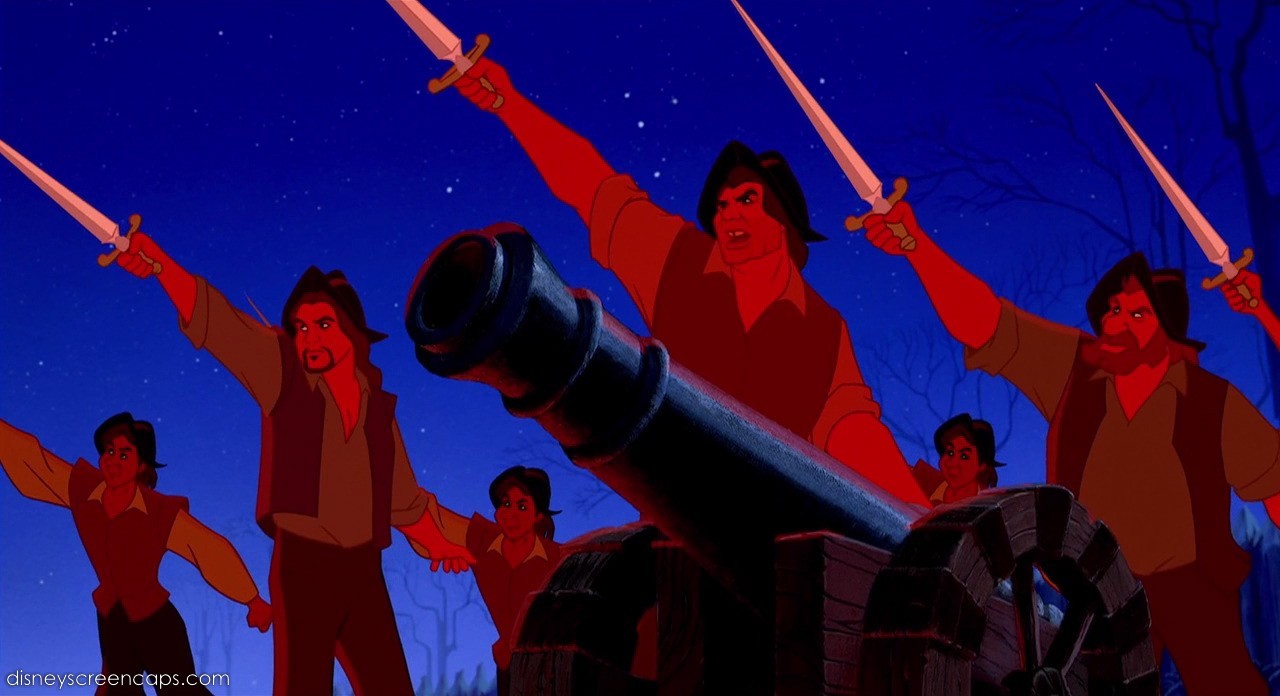 No one denies that the animators at Disney were trying to make Pocahontas into something special. The film's score, which was the last time a Disney Canon film would win the Oscar, is no exception to the rule. This score and the score to Beauty and the Beast are very similar, both give time for the simple moments, but have huge sweeping moments, such as the race to save John Smith from his execution and the storm sequence in the beginning. And like other films of the era, the film utilizes Native American chants and choirs to better give audiences a feeling that they can immerse themselves in the world the animators have created. You have to give the underdog credit in this department, the orchestrations of Pocahontas are impressive.
No one denies that the animators at Disney were trying to make Pocahontas into something special. The film's score, which was the last time a Disney Canon film would win the Oscar, is no exception to the rule. This score and the score to Beauty and the Beast are very similar, both give time for the simple moments, but have huge sweeping moments, such as the race to save John Smith from his execution and the storm sequence in the beginning. And like other films of the era, the film utilizes Native American chants and choirs to better give audiences a feeling that they can immerse themselves in the world the animators have created. You have to give the underdog credit in this department, the orchestrations of Pocahontas are impressive.+5 points
5. Beauty and the Beast (Alan Menken)

As there was with the Disney Songs countdown, there must unfortunately be a sacrificial lamb in this department as well. And as moving and interesting as Menken keeps this score, the remaining four scores are just superior in terms of execution and sweeping moments. The score for Beauty and the Beast is not as important as the songs, but you can tell Menken is giving it his all once again for this film. It's lighthearted, gentle, mysterious, and ferocious when it needs to be. But the best job the score of the movie does is allow us to enter both the joyous and tragic moments for both our leading lady and our leading man (or Beast). Without the score, the emotional stories of these two might not have been the same, which gives me great cause for concern with the upcoming blitzkrieg of live action reboots Disney is doing.
+6 points
4. The Hunchback of Notre Dame (Alan Menken)
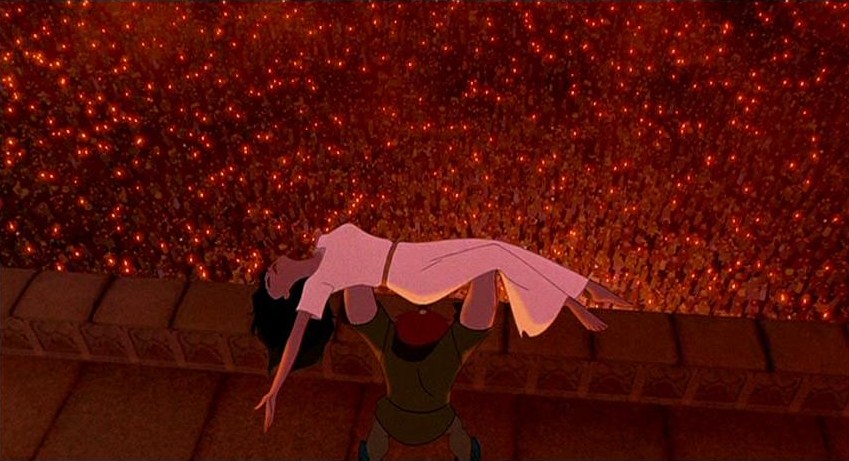
The Final Four in the countdown was almost impossible for me to rank. Every single film remaining on the list has a deep and moving score and I think I might be making a mistake putting arguably the best score Disney had in the 1990's not at #1, but I will not step away from this. Consider these four so close that they could all rank first. Menken does arguably his best work here with The Hunchback of Notre Dame, taking complete advantage of the Latin Choirs Disney had amassed for this film. Hunchback's score is loaded with great moments, from the burning of Paris to the humiliation of Quasimodo, but the single greatest moment of the score is the famous "Sanctuary!" scene, where Quasimodo and his friends fend off the soldiers and Frollo while protecting Esmeralda. Were it not for three other films, Hunchback would have ran away with this list. Let's just say that it's gonna be pretty hard to trump this.
+7 points
3. The Little Mermaid (Alan Menken)
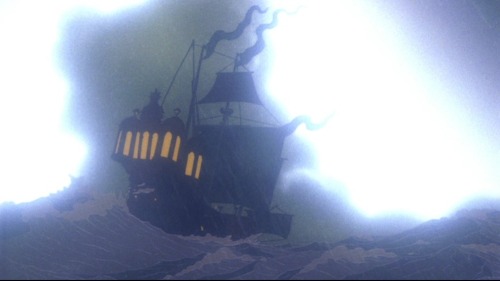 To say that Alan Menken was pretty much a nobody when his very first film score won the Oscar in 1990 was an understatement. After all, Alan was at that point, Howard's cling-on luggage. But after we were the witnesses to one of the most highly acclaimed musical scores of all time, we knew that Menken was just as special as his partner. Menken knew to take advantage of his opportunity, giving us just the kind of musical power we knew to expect from the upcoming decade, allowing his music to range from breezy and fun, to electric and powerful. The score is so well executed, one could easily mistake Menken for being a veteran of over 30 movies, like a John Williams or a Danny Elfman. But no, Menken was a first timer, and a star was born, all thanks to his brilliance in melody execution and imagination.
To say that Alan Menken was pretty much a nobody when his very first film score won the Oscar in 1990 was an understatement. After all, Alan was at that point, Howard's cling-on luggage. But after we were the witnesses to one of the most highly acclaimed musical scores of all time, we knew that Menken was just as special as his partner. Menken knew to take advantage of his opportunity, giving us just the kind of musical power we knew to expect from the upcoming decade, allowing his music to range from breezy and fun, to electric and powerful. The score is so well executed, one could easily mistake Menken for being a veteran of over 30 movies, like a John Williams or a Danny Elfman. But no, Menken was a first timer, and a star was born, all thanks to his brilliance in melody execution and imagination.+8 points
2. Aladdin (Alan Menken)

While The Little Mermaid's score was enlightening and Beauty and the Beast's was breathtaking, the score for Aladdin was a score that immediately felt familiar to us all. Why's that? Menken took advantage of all of the elements placed around him, from the imagination of the artists to the stylized scores of movies like Raiders of the Lost Ark, in order to make Aladdin fit in well with both casual Disney fans and the action movie fans. But it's not just recognizing elements of Raiders or Star Wars that makes this film's score so good, but it's the fact that almost every single character in this film get's their own theme and each is in perfect sync with their character. Jasmine's is soft and sweet, Genie's is ambitious and brisk, Aladdin's is moving and sincere, and Jafar's is sinister and ruthless. The score gives the film many great chances to have epic action scenes, and it delivers every chance it gets to give us as an audience exactly what we wanted...
+9 points
1. The Lion King (Hans Zimmer)
 But there can only be one true king of the list, and in this department, it's difficult to argue against Hans Zimmer's sweeping and daring orchestrations for one of the studio's most famous films. Zimmer put together one of the greatest groups ever assembled for the musical stylings of an animated film, utilizing not only the London chorale, but also choirs of actual Zulu Africans from South Africa. The result was absolutely breathtaking. Zimmer is able to transform a simple fable about a lion cub searching for his place in the Circle of Life into a sweeping symphonic masterpiece on par with the very best of not only Disney History, but in the history of the Motion Picture industry. There are far too many standout moments in the score to list, but make sure you guys find a way to get the Complete Score for the film downloaded onto your MP3 players or iPods. Because it is a film score you will never forget.
But there can only be one true king of the list, and in this department, it's difficult to argue against Hans Zimmer's sweeping and daring orchestrations for one of the studio's most famous films. Zimmer put together one of the greatest groups ever assembled for the musical stylings of an animated film, utilizing not only the London chorale, but also choirs of actual Zulu Africans from South Africa. The result was absolutely breathtaking. Zimmer is able to transform a simple fable about a lion cub searching for his place in the Circle of Life into a sweeping symphonic masterpiece on par with the very best of not only Disney History, but in the history of the Motion Picture industry. There are far too many standout moments in the score to list, but make sure you guys find a way to get the Complete Score for the film downloaded onto your MP3 players or iPods. Because it is a film score you will never forget.+10 points
Current Standings:
1. Aladdin 51 pts
2. Beauty and the Beast 49 pts
3. The Lion King 44 pts
4. The Little Mermaid 41 pts
5. The Hunchback of Notre Dame 40 pts
6. Hercules 23 pts
7. Pocahontas 22 pts
8. Mulan 22 pts
9. Tarzan 20 pts
*10. The Rescuers Down Under 18 pts
Next Round, we see just where all of that money in the budget went. Here's to the Best Animation...

I probably give a thumbs up to Hans Zimmer and his immense score of The Lion King. It's so truly aspiring that Hans did a amazing job on the film but he proves a masterful composer that anybody could ever hear his music.
ReplyDelete